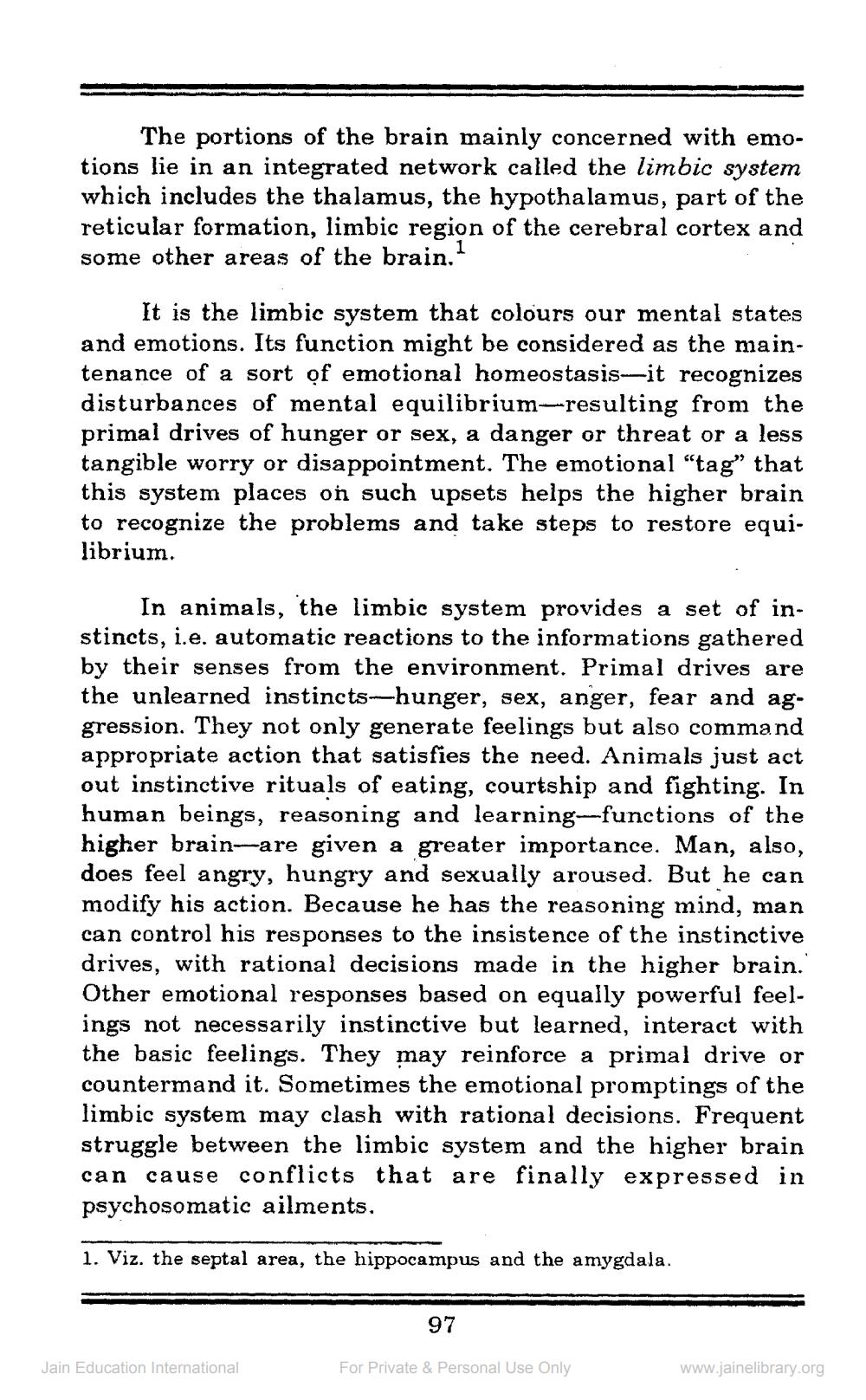________________
The portions of the brain mainly concerned with emotions lie in an integrated network called the limbic system which includes the thalamus, the hypothalamus, part of the reticular formation, limbic region of the cerebral cortex and some other areas of the brain.1
1
It is the limbic system that colours our mental states and emotions. Its function might be considered as the maintenance of a sort of emotional homeostasis-it recognizes disturbances of mental equilibrium-resulting from the primal drives of hunger or sex, a danger or threat or a less tangible worry or disappointment. The emotional "tag" that this system places on such upsets helps the higher brain to recognize the problems and take steps to restore equilibrium.
In animals, the limbic system provides a set of instincts, i.e. automatic reactions to the informations gathered by their senses from the environment. Primal drives are the unlearned instincts-hunger, sex, anger, fear and aggression. They not only generate feelings but also command appropriate action that satisfies the need. Animals just act out instinctive rituals of eating, courtship and fighting. In human beings, reasoning and learning-functions of the higher brain-are given a greater importance. Man, also, does feel angry, hungry and sexually aroused. But he can modify his action. Because he has the reasoning mind, man can control his responses to the insistence of the instinctive drives, with rational decisions made in the higher brain. Other emotional responses based on equally powerful feelings not necessarily instinctive but learned, interact with the basic feelings. They may reinforce a primal drive or countermand it. Sometimes the emotional promptings of the limbic system may clash with rational decisions. Frequent struggle between the limbic system and the higher brain cause conflicts that are finally expressed in psychosomatic ailments.
can
1. Viz. the septal area, the hippocampus and the amygdala.
Jain Education International
97
For Private & Personal Use Only
www.jainelibrary.org




